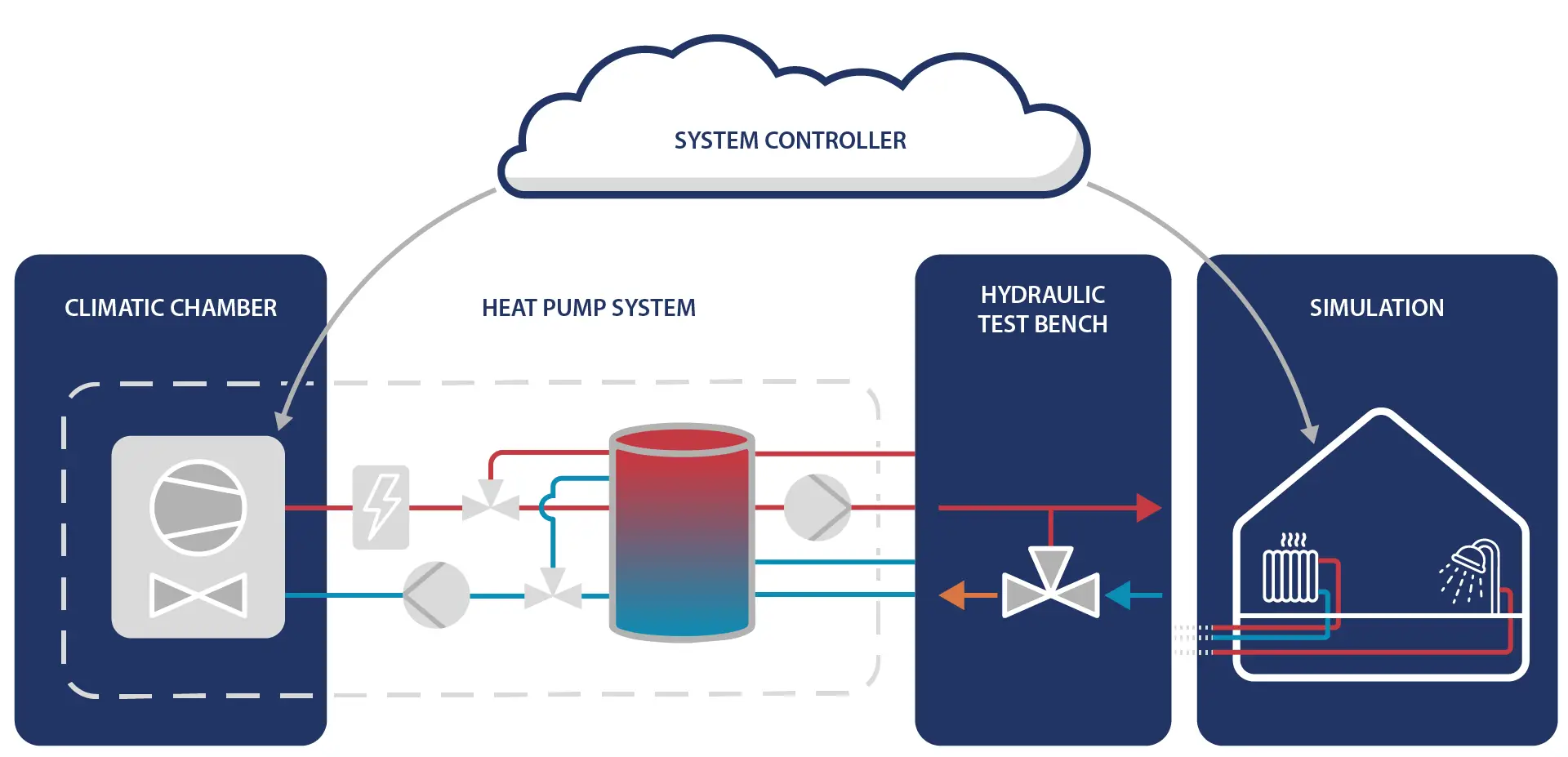System Controller Evaluation
The operating costs of the building energy systems of the future will be influenced by dynamic prices resulting from the building's own PV system or dynamic tariffs. Modern system controllers can exploit these dynamics and are thus gaining in importance. In our laboratories, we evaluate system controllers, both simulatively and experimentally.

The complexity of building energy systems is increasing: In addition to systems for heat generation, more and more systems have PV systems, heat storage, or charging stations for electric cars. This creates highly dynamic boundary conditions, both for the demand profiles and operating costs.
Modern system controllers optimize the operating strategy of the systems and can significantly reduce operating costs. Due to their complexity, system controllers are often only evaluated using simplified systems and exclusively by simulation. The operating behavior of heat pumps, in particular, is difficult to predict, as the control is complicated due to a small number of interfaces, for example.
We can experimentally scrutinize system controllers in our laboratories using the hardware-in-the-loop method. Depending on the complexity, the building energy system can be extended with additional components, such as storage or PV systems, either simulatively or experimentally. Virtual variables can be emulated or transferred to the system controller in the appropriate format. By selecting suitable periods, the actual effect of the investigated controller can be evaluated through the field test in the laboratory.